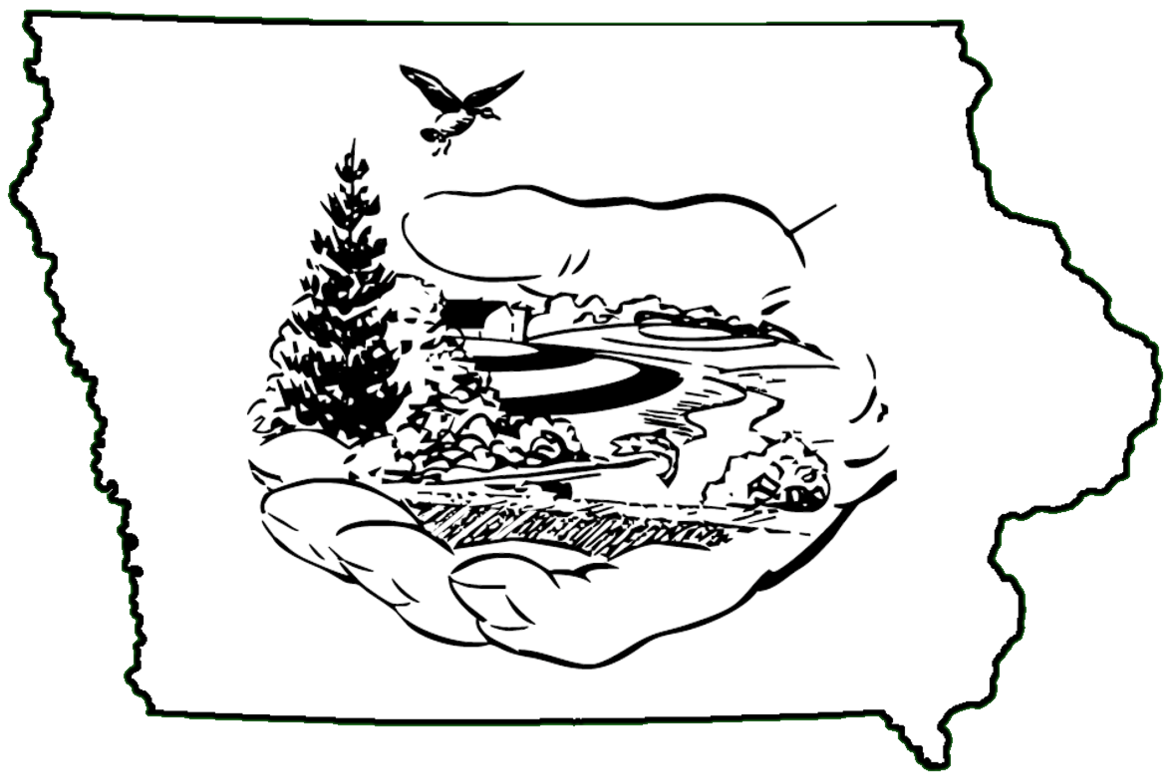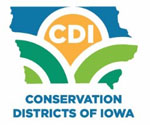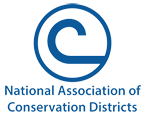Soil and Water Conservation Districts (SWCDs) are legal subdivisions of state government. SWCDs in Iowa are managed by a board of five elected commissioners serving four-year terms.
With assistance from the USDA Natural Resources Conservation Service (NRCS) and Iowa Department of Agriculture and Land Stewardship (IDALS) – Division of Soil Conservation and Water Quality, commissioners address the natural resource issues that are most critical in their districts.
The board of commissioners is responsible for carrying out state laws and programs within district boundaries, including erosion and sediment control laws, conservation cost-sharing (IFIP, REAP, WQI, etc.), State Revolving Fund loans, and water quality protection projects.
The general statement of powers, duties, and specific provisions of Conservation Districts are contained in Iowa Code Chapter 161A.
The Role of Commissioners
Commissioners help decide the direction of soil and water conservation programs in the county, and have the opportunity to influence state and national conservation programs.
Commissioners are expected to take part in regular monthly meetings, become knowledgeable of the SWCD laws and programs, develop and carry out soil and water resource conservation plans, and help direct financial incentives programs. Commissioners’ roles include activities such as establishing conservation priorities for the District, resolving soil loss complaints, establishing acceptable soil loss limits, publishing an annual report, approving soil conservation plans, and assisting in the management of district funds and personnel.
In the words of a commissioner: “The job of commissioner is challenging and very rewarding at the same time. A very short job description would say that Soil and Water Board Commissioners, there are five, decide how the money allocated to Madison County for soil and water conservation is spent. … In addition to all their other duties, the commissioners also work with and give guidance to the staff at the NRCS office on behalf of the residents of Madison County.” – Keith Sparks, former commissioner and Chairman.
Assistant Commissioners may be appointed by the board to assist with the activities of the District. Assistant Commissioners may act in an advisory capacity and offer suggestions or comments, but do not have a vote on the board.
How to Become a Soil and Water Conservation Commissioner
Commissioners may come from all walks of life; all you need is an interest in protecting our natural resources. If you are qualified to vote in a general election and reside in Madison County, you are eligible to be a candidate for election to the board of the Madison County SWCD.
Five commissioners are elected at general elections on a nonpartisan basis for staggered four-year terms. Up to two commissioners may reside in any one township. The position is voluntary (unpaid), though commissioners are reimbursed for expenses and protected from personal liability.
To run for election, candidates must file a Nomination Petition (with at least 25 signatures of eligible voters) and an Affidavit of Candidacy with the Madison County Auditor no later than the 69th day before the general election.Elected commissioners take an oath of office and begin their four-year term on the first business day in January (that is not a Sunday or holiday) following the election. For more information on becoming a commissioner, visit Conservation Districts of Iowa’s website here.
Conservation District Organizations
Conservation Districts of Iowa (CDI) supports the soil and water conservation districts through public education, acknowledgement, commissioner development, policy, on-the-ground conservation, conservation practice promotion, events and more. CDI’s mission is to inform, educate and lead Iowans through our local soil and water conservation districts to promote conservation of natural resources.
The National Association of Conservation Districts (NACD) is the 501(c)(3) nonprofit organization that represents America’s 3,000 conservation districts and the 17,000 men and women who serve on their governing boards. NACD’s mission is to promote responsible management and conservation of natural resources on all lands by representing locally-led conservation districts and their associations through grassroots advocacy, education and partnerships.


